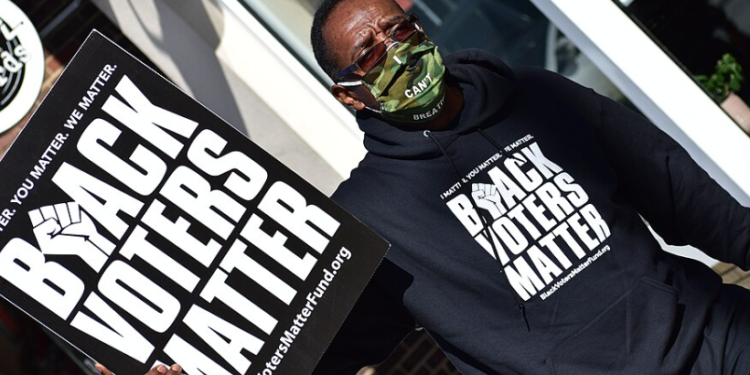Nov 16, 2024 Story by: Editor
The idea of a “racial realignment“—a potential shift of voters of color away from the Democratic Party—has sparked significant political debate. Evidence of this shift surfaced during the 2020 presidential election, as more Black, Hispanic, and Asian Americans supported Donald Trump than in 2016, though Joe Biden still secured the majority of votes within these groups. Current polling suggests that these trends could deepen ahead of the 2024 election.
Racial Attitudes vs. Group Identity
Some commentators argue that these shifts indicate a declining role of race in U.S. politics. David Leonhardt, writing for The New York Times, posited that Trump’s appeal to “working-class” people of color diminishes the role of racial resentment in his political success, emphasizing class over race. However, this perspective conflates racial group identity with views on racial issues. While politics may seem less polarized by racial groups, they have become more divided on racial attitudes.
Varied Perspectives Among People of Color
Research shows that racial and ethnic groups in the U.S. do not hold uniformly progressive views on racial issues. For instance, early studies by political scientist Louis DiSipio found that many Latinos supported making English the national language, despite its direct relevance to their community. Similarly, the 2020 American National Election Study revealed nuanced racial attitudes among Black Americans, with some attributing racial inequality to a lack of effort among Black people.
Racial Conservatism and Republican Gains
The 2020 election data illustrates that Trump’s gains among voters of color were concentrated among those with conservative views on race. For example, 33% of Latinos and 24% of Asian Americans either disagreed or held no opinion on whether white people enjoy certain advantages due to their skin color. These individuals were more likely to shift toward Trump compared to their counterparts with more progressive racial attitudes.
Latino Views on Black Equality
A separate analysis of Latino voters between 2019 and 2022, using Pew Research Center data, further supports this trend. Latinos who believed the country had done enough or too much to ensure equal rights for Black Americans were more likely to shift toward the Republican Party.
Broader Implications
These trends challenge the notion that a racial realignment diminishes the role of race in politics. Instead, they highlight the increasing correlation between racial attitudes and political preferences across racial and ethnic groups. As such, any shifts in party allegiance among voters of color cannot simply be attributed to class dynamics.
Conclusion
The evolving relationship between race, racial attitudes, and political behavior underscores the complexity of U.S. electoral dynamics. While voters of color are diversifying their political affiliations, these changes underscore the enduring significance of race as a factor in American politics, shaping both party allegiance and broader ideological divides. Source: Good Authority

















